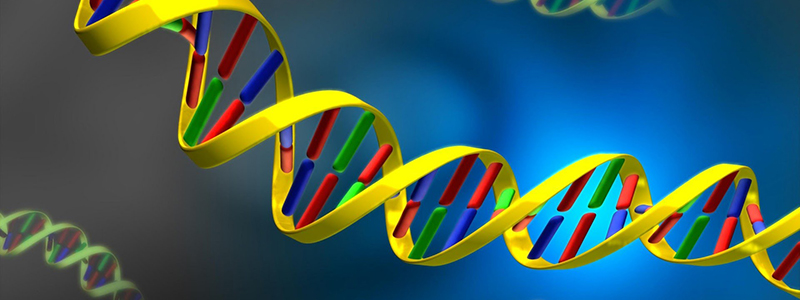Basic research in the field of nutrition has enabled to develop, in animals, a system regulating the expression of a gene through a specific diet leading to original therapeutic applications. Developed by a team from the Human Nutrition Unit (Inra, University of Auvergne), in collaboration with researchers of the Brain and Spine Institute (CNRS, Inserm, AP-HP, UPMC), this tool allows to monitor the expression of a therapeutic protein, and disseminate it locally and intermittently according to needs. These results were recently published in Nature Biotechnology magazine.
Gene therapy consists in the introduction of a gene within cells to treat or prevent diseases. This gene can replace a defective gene in the case of a genetic disease or favour the production and local dissemination of a therapeutic factor. A major limitation in the use of gene therapy is the lack of control of transgene regulation (the gene introduced in the body). The only inducible systems in mice require the expression of exogenous regulatory proteins (receptors) as well as inducing chemical molecules (doxycycline, ecdysone, rapamycin…). However, the potential side effects of these systems preclude their use in human medicine.
The “gene-nutrient” team from the human nutrition Unit (Inra, University of Auvergne), in collaboration with the “Biotechnology and Biotherapy” team from the Institut du Cerveau – ICM (CNRS, Inserm, APHP, UPMC) has developed a system in which the regulation of a gene is controlled through a special diet, in which one of the essential amino acids (EAA) is absent.
In mammals, EAAs are not synthesized by the body and must be provided by food. In case of deficit, the body must adapt to the deficit in EAA. To do so, it activates a specific signalling pathway leading to the regulation of the production of certain proteins involved in amino acid homeostasis. Researchers have thus used the properties of this signalling pathway in order to develop a regulation system consisting in a promoter (DNA area, allowing the transcription and thus the expression of a gene) and an inducer*. In this system, scientists are able to control the activation of the promoter through ingestion of a diet deficient in EAA**.
As a first step, researchers have tested the induction of a “reporter” gene (test) in mice. The construction has been transferred to different tissues : liver, pancreas, or in a particular area of the brain, the hippocampus. They have found that a meal devoid of EAA induced very quickly the expression of the transgene. They have thereafter evaluated the efficiency of a therapeutic gene against cancer : TRAIL. The expression of this gene leads to tumour cell death. However, this expression has to be highly localized on the tumour site and very finely regulated, since it is potentially toxic to normal human cells in case of strong and prolonged exposure. Researchers have shown the possibility of an intermittent and controlled regulation of the expression of TRAIL and its effect on tumour proliferation inhibition.
The discovery of a simple, reliable and safe way to regulate the expression of genes is a crucial step forward in the field of gene therapy and its multiple fields of application. Indeed, the gene-drug expression often requires an accurate regulation and an exact dosage. This system will allow gene therapy treatments which could not be considered before.
* The promoter is, among other elements, constituted of answers to amino acids and the inducer is the amino acid deficient diet.
** Such a diet should be administered after a short fast and has to be provided in the form of a free amino acid “cocktail” or a full meal in which proteins are replaced by a free amino acid mixture.
Reference : Regulating the expression of therapeutic transgenes by controlled intake of dietary essential amino acids. Cédric Chaveroux, Alain Bruhat, Valérie Carraro, Céline Jousse, Julien Averous, Anne-Catherine Maurin, Laurent Parry, Florent Mesclon, Yuki Muranishi, Pierre Cordelier, Aline Meulle, Patrick Baril, Anh Do Thi, Philippe Ravassard, Jacques Mallet & Pierre Fafournoux. Nature Biotechnology, 6 juin 2016.







